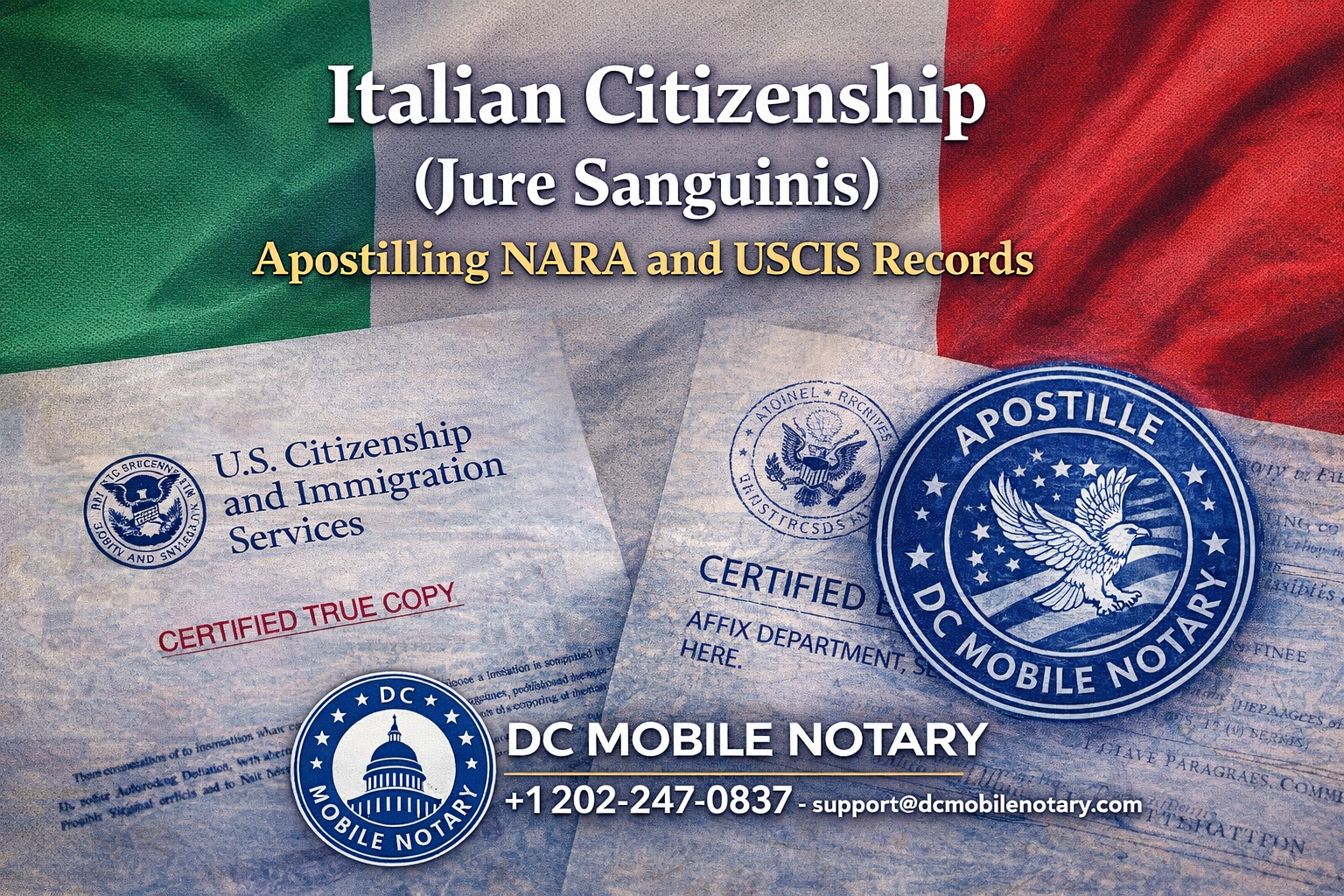Notary and apostille in Bethesda and Potomac MD – How to Start a Mobile Notary Business

January 12, 2020

If you’re looking for a new career path and are not sure which route is right for you, you might want to consider starting your very own mobile notary business. With companies such as DC Mobile Notary in Bethesda and Potomac, MD now enjoying some of their most lucrative spells in business, now is as good a time as any to get into the mobile notary business. Make no mistake about it, though, this isn’t just something you can do on a whim and it isn’t something you can set up in a matter of weeks. If you want to become a mobile notary, there are all kinds of pitfalls to watch out for, and all manner of hoops to jump through. Here’s a look at several handy tips you can follow in order to start your very own mobile notary business.
Check your state’s requirements – First and foremost, if you want to set up your own mobile notary business, you need to double-check your state’s requirements first. Different states have different rules, laws, and regulations governing notarization, so check the ones in your area. As an example, DC Mobile Notary services in Bethesda and Potomac, Maryland are not going to be have the exact same rules, laws and requirements as another mobile notary company located in a completely different state. A few things you can bet on, though, is that you will need to be at least 18 years of age, you must reside in the state you wish to practice in, you must be able to read and write fluently in the English language, and that you have not been revoked from a notary commission at any point in the past.
Complete your training and education – Again, different states will have different rules, laws, and regulations when it comes to the basic requirements for training and education to become a mobile notary. As of this writing, 12 states in the US have training as a mandatory requirement before you can become a notary. Others strongly recommend it. Training can last several months in some cases, whereas others it can last hours. Like most things, though, the more you know, the better you’ll be. As far as costs are concerned, some states offer these courses for free, whereas others may charge a couple of hundred bucks. Again, check in advance to see how much it will set you back, and what is required of you.
Get a surety bond – As a notary, you are of course expected to perform your services correctly, but you are only human. Notaries have been known to make mistakes in the past, and this is where surety bonds prove useful. A surety bond protects your customer in the event of you making a mistake when notarizing their document, or any other error which costs them money. For four years of coverage, a $10,000 surety bond will set you back just $30. This is an investment as it gives you and your clients peace of mind, and it gives them faith in your abilities. This is NOT the same as an insurance policy, though, so be sure to consider that when deciding whether or not you want an insurance policy as well. If you do, by the way, you’ll want an ‘errors and omissions insurance policy’.

‹ Previous
Next ›

Apostilling Articles of Incorporation for International Use

February 17, 2026

Italian Citizenship (Jure Sanguinis): Apostilling NARA & USCIS Records

February 13, 2026





